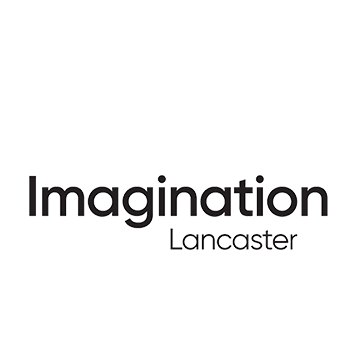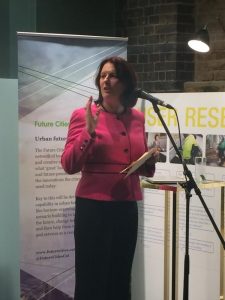Professor Rachel Cooper, non-executive Director of Future Cities Catapult, welcomed over 150 people to the Family Day Out Programme at Oui2 in London on the evening of 8 April 2014.
The purpose was to promote a project the Future Cities Catapult is collaborating on to develop technology-enabled solutions that will help make living or moving through cities more enjoyable for partially sighted people and their families.
Enjoying a day out in the city depends on being able to get from place to place, seamlessly. For blind and partially sighted people, just navigating around a city can leave them feeling tired, anxious and vulnerable. Technology-enabled navigation provides an opportunity to help make this experience better.
We are working with core partners Guide Dogs for the Blind and Microsoft to develop a detailed understanding of the challenges faced by blind and partially sighted people as they travel in and around cities. There are two initial phases to the project:
Understanding the user experience. Using a human-centred design approach allows us to understand the issues of mobility, navigation and stress reduction from the perspective of blind and partially sighted people in the city. We are already undertaking a pilot to build ‘anxiety maps’ of people’s stress levels during a journey from Reading to London using public transport.
Transforming mobility in cities. From the location of bus stops to improving information on train platforms, we are working with businesses, government and research organisations to explore opportunities for incremental innovations and new services that will make navigating cities easier and more enjoyable for people with sight loss.
This project will not just help to improve mobility and independence for blind and partially sighted people. Developing ‘inclusive design’ solutions like these can help surface innovations that are beneficial to all people navigating around complex urban environments.

